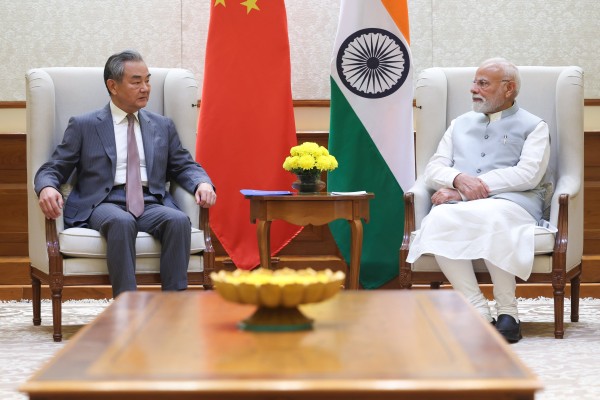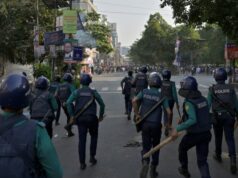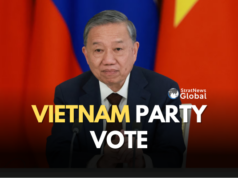
Prime Minister Narendra Modi will meet Chinese President Xi Jinping on the sidelines of the Shanghai Cooperation Organisation (SCO) summit in Tianjin later this month, marking the first such bilateral encounter since the 2020 Galwan clashes.
The formal announcement came after Chinese Foreign Minister Wang Yi’s two-day visit to India, during which he co-chaired the 24th round of Special Representatives’ talks on the boundary issue with National Security Adviser Ajit Doval, met External Affairs Minister S. Jaishankar, and called on Modi.
Striking a reconciliatory note, Wang said the bilateral relationship is facing an “important opportunity” and acknowledged that the “setbacks we experienced in the past few years were not in the interest of the people of our two countries.”
Referring to Modi’s October 2024 meeting with Xi in Kazan, Russia, during the BRICS summit, Wang said that dialogue “pointed the direction for the development of our bilateral relations and provided impetus for the proper settlement of the boundary question.”
In his meeting with Wang, Modi said, “Stable, predictable, constructive ties between India and China will contribute significantly to regional as well as global peace and prosperity.”
The Prime Minister also emphasised the importance of maintaining peace and tranquillity along the border and reiterated India’s commitment to a “fair, reasonable and mutually acceptable resolution of the boundary question.” Wang handed over a personal message and invitation from Xi to Modi for the SCO summit, which Modi accepted, the Ministry of External Affairs confirmed.
According to the MEA, Jaishankar “strongly raised” concerns over cross-border terrorism from Pakistan, “reminded” that countering terrorism was one of the SCO’s founding objectives, and highlighted India’s apprehensions about China’s planned mega dam on the Yarlung Tsangpo (Brahmaputra), calling for “utmost transparency.” Jaishankar also stressed that the process of disengagement along the Line of Actual Control (LAC) needs to “move forward.”
NSA Doval, describing last year’s SR-level talks in China as “wonderful,” said ties had shown an “upward trend” and expressed hope the 24th round would be equally successful.
Wang, for his part, said, “Now the bilateral relationship is facing an important opportunity for improvement and growth. History and reality proved once again that a healthy and stable China-India relationship serves the fundamental long-term interests of both of our countries. It is also what the developing countries all wanted to see.”
According to StratNewsGlobal Editor-in-Chief Nitin Gokhale, there were “major decisions between India and China on the protracted boundary issue apart from several positive takeaways” in Wang’s talks with Doval and Jaishankar.
Sharing highlights, he wrote on X:
Major decisions between India and China on the protracted boundary issue apart from several positive takeaways in Wang Yi’s talks with NSA Ajit Doval and EAM S. Jaishankar. Lots to unpack but here are the main highlights.
1. What does early harvest in the delimitation in… pic.twitter.com/qjqZlmW80F
— Nitin A. Gokhale (@nitingokhale) August 19, 2025
“1. What does early harvest in the delimitation in India-China border areas really means? Could it be exchange of maps of the less controversial Middle Sector eventually leading to delineation and demarcation of all part of the boundary? … The expert group mechanism agreed to in the latest talks may begin that process.
2. Like in the Western or Ladakh sector, three star generals will now talk to each other in both Eastern and Middle sectors.
3. Will the formation of the working group under the WMCC lead to new border management protocols?
4. Border trade to resume from designated points.
5. Number of Indian pilgrims undertaking the Kailash Mansarovar Yatra … to increase in 2026.
6. The two sides exchanged views on trans-border rivers cooperation … The Chinese side agreed to share hydrological information during emergency situations …
7. EAM Jaishankar underlined India’s concerns with regard to the mega dam construction …
8. The Chinese side raised the issue of Taiwan. The Indian side underlined that there was no change in its position …”
“Five years after Galwan, this is a LOT of progress. More analysis tomorrow,” he concluded.
Some observers, however, while welcoming discussions on border peace and economic cooperation, noted that Wang heading directly to Islamabad from Delhi “makes for bad optics,” and sends mixed messages about China’s seriousness toward normalising ties with India.
In a career spanning three decades and counting, Ramananda (Ram to his friends) has been the foreign editor of The Telegraph, Outlook Magazine and the New Indian Express. He helped set up rediff.com’s editorial operations in San Jose and New York, helmed sify.com, and was the founder editor of India.com.
His work has featured in national and international publications like the Al Jazeera Centre for Studies, Global Times and Ashahi Shimbun. But his one constant over all these years, he says, has been the attempt to understand rising India’s place in the world.
He can rustle up a mean salad, his oil-less pepper chicken is to die for, and all it takes is some beer and rhythm and blues to rock his soul.
Talk to him about foreign and strategic affairs, media, South Asia, China, and of course India.




